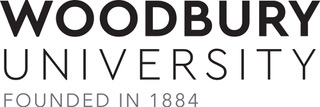By: Joan Marques is Dean of the Business School at Woodbury University
COVID-19: THE PARADIGM SHIFTER?
By Joan Marques is Dean of the Business School at Woodbury University

A now infamous 2019 novel coronavirus is resulting in a paradigm-shifting hindsight in 2020. Whether we are amused, terrified, or unaffected by this wordplay, the Covid-19 phenomenon, which has now presented itself in more than 180 countries and territories of the world, is one that several generations alive today have not seen or experienced before. Practically from one week to another, we found life completely disrupted, with the status quo transmuted to a romantic dream of the past, and the future insecure. As stay at home mandates became the new normal, the human cohort started realizing a few things:
-Work had to be redefined and redesigned. Those of us who held tight to a brick and mortar reality had to make a swift move to online performance.
-Unforeseen twists emerged, with some smart paying professions in the service industry losing their luster, and less sophisticated ones, such as grocery store stackers and agrarian laborers, becoming hot commodities.
-While we may initially return to pre-Corona routines, it won’t be long before the proven potential of the current trend will lead to a permanent redesign of the professional world and elicit shifts in our value system as unprecedented as the COVID-19 tornado.
Here’s one example of a potential shift in our value system: Brazil, world’s most prominent coffee bean producer, experienced its wettest rainy season in the first quarter of 2020. As if the increased fungal threat for the harvest was not challenging enough, the restrictions placed on contract laborers to travel to the coffee plantations, and the disapproved housing accommodations for these workers on location during the harvest season, may result in a significant drop in the forthcoming coffee bean supply. The effect of this accrued challenge will most likely be: a stiff reduction in the annual production of about 7.8 billion pounds of aromatic Arabica and Robusta beans, two-thirds of which are intended for export (Telegraaf, April 4, 2020). Similar circumstances have been described for the global tea supply in China (World Tea News, Feb 25, 2020) and staple food grains such as wheat in India, where harvesting in rural areas has also suffered from lockdown regulations (Reuters, April 1, 2020). In the same vein, American, Australian, Canadian, and other produce growers and meat processors have expressed concerns in regards to preparing for the harvest of their crops, now that migrating seasonal farm workers cannot travel. (Time Magazine, March 18, 2020)
A sudden awareness of our global interdependency has kicked in, and an unsustainable value system has become exposed.
With the seasonal laborers unavailable for harvests and production, it’s not hard to figure out what stands to happen: production and supply will decrease, and prices will rise.
The foundations for an overdue paradigm shift are also visible in current unemployment numbers. In the last two weeks of March 2020 alone, about 10 million of the roughly 157 million working Americans (6.4 percent) filed for unemployment. Sources report that those in service jobs, manufacturing, and construction – totaling about a third of the US workforce - will be mostly affected by the economic disruption. (CNBC, April 3, 2020)
So, how could Corona instigate a paradigm shift? Here’s the wrap-up:
⁻The COVID-19 manifestation has triggered a series of protection measures within communities throughout the world.
⁻The measures included major performance changes, which many dreaded, but others had been anticipating, albeit at a slower pace.
⁻As online performance due to mandatory home stays exploded, the beginnings of a future employment model emerged. Numerous well-remunerated job holders found themselves placed on mandatory furlough to reduce overhead in their workplaces. At the same time, other industries such as health care, telecommunications, shipping and delivery, grocery store chains, technical support, and online learning services, expressed soaring needs for employees.
⁻The massive and surprising shift in employment attractions and rejections has triggered a reality check within many, entailing serious reflection on what really matters anymore. Given our increasingly interconnected world, it is becoming obvious that some valuations, such as the way we accommodate and remunerate those at the production level of the employment pyramid, will have to be adjusted.
The triggers toward reevaluation of the needs in our collaborative performance system are depicted in figure 1.

Figure 1: COVID-19 as paradigm shifter for humanity
Which industries will really thrive once the dust has settled is still unclear, even though it seems safe to conclude that healthcare and production of food wares will remain solid areas.
While some, especially those in most affected industries, may feel disheartened, we all have the choice to perceive the current circumstances as a natural progression in accelerated format, ultimately resulting in a new balance. It’s up to us to take the lessons from the recent unparalleled experiences to heart, and build the new balance on increased respect, acceptance, and mutual support amongst members of the human and non-human cohort, now that we are collectively dealing with the most common factor of being on earth: insecurity.

WOODBURY UNIVERSITY
7500 N. Glenoaks Bl.
Burbank, CA 91504
626.488-0732
WOODBURY | Non-profit, fully accredited education
|